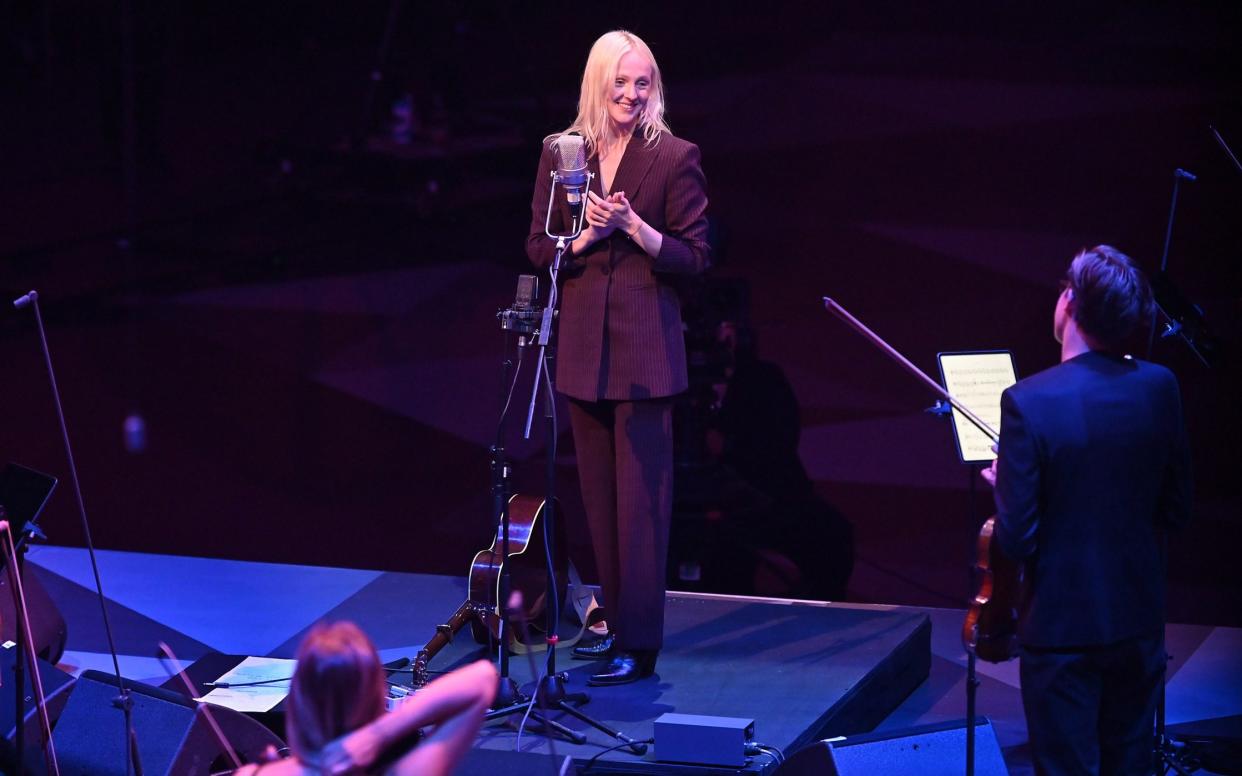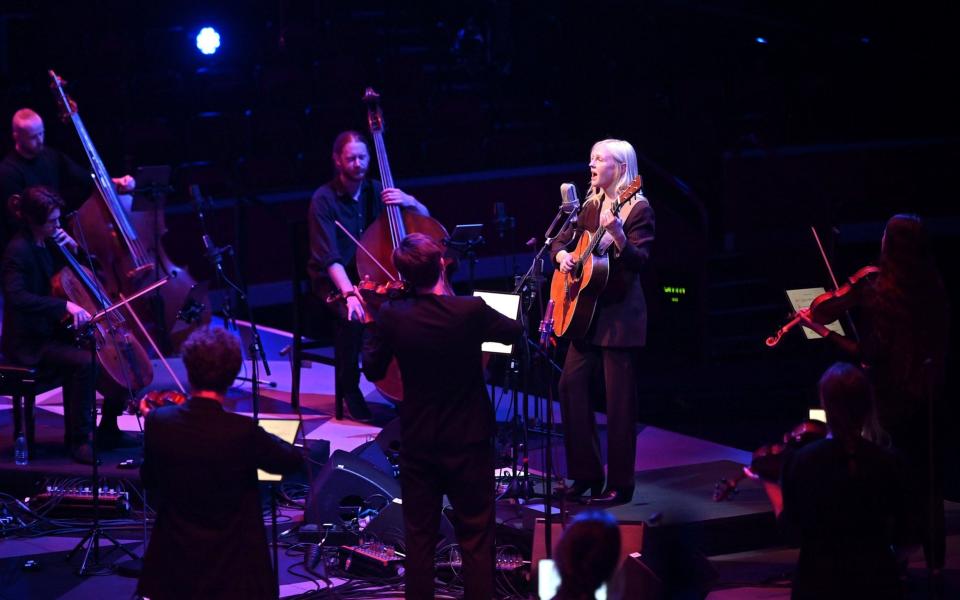Laura Marling and 12 Ensemble, Proms Live 2020, review: like an act of solitary performance art that required no witnesses

Social distancing may suit Laura Marling, who has never been the most effusive of live performers. Even in normal circumstances on stage, she is about as chatty as a Carmelite nun and physically demonstrative as one of those human statues that stands around in public places scaring children when they suddenly blink an eye. But there was something icily detached about her debut Prom appearance, played in an empty Royal Albert Hall, with only a string ensemble and television crew for company. It was so still and focused it seemed to have negated the need for any audience at all.
In a stylish pinstripe suit worn shirtless, pale blonde hair falling around her expressionless face, Marling cut a figure as striking as Bowie in his androgynous alien prime, the woman who fell to earth. She stood on a stage in the central circular floor of the august venue, effectively with her back turned to where most of the audience should have been. Instead, she faced the socially distanced members of experimental unconducted string group 12 Ensemble without apparently acknowledging them.
Marling stood stock still throughout, glazed eyes fixed on the middle distance but concentrating on some internal space. For their part, the black-garbed violinists and cellists stood in a sombre half circle, watching the star with rapt attention as they added parts that extended and enriched her melodies with velvety luxuriousness. In the moody blue lighting and the cavernous space, it had the atmosphere of some weird religious cult ceremony.
Marling is an exceptional talent, an English singer-songwriter of supreme lyrical quality and prodigious musical skills, with a mesmerising voice that shifts effortlessly from dry talk-singing to rich mid-tones and spectacularly easy-flowing high notes. To watch that sound emerge from her mouth in televised close-up was fascinating, while her long fingers moved deftly up and down the neck of her acoustic guitar in a virtuoso blend of picking, strumming and folk riffing.
Aged 30, this prodigious talent has already released seven solo albums and one collaborative electronic album, each filled to the brim with songs of poetic intensity and exquisite melodiousness, essaying a seriousness of philosophical, emotional and artistic intent.

During her Prom, she performed a solo cover of Paul Simon’s Still Crazy After All These Years, and there was nothing aspirational about the song choice. That is the company Marling deserves to be considered in, along with other influences among all time greats such as Joni Mitchell, Leonard Cohen, with a touch of Bob Dylan and Neil Young, with a core of English folk that calls to mind Sandy Denny and Richard Thompson. Yet there remains a stark, cerebral aspect to her oeuvre that is easier to admire than to love.
However the BBC market their pandemic Prom broadcasts, this was barely a live concert: it was a staged event. Guitars were changed with no visible intervention from roadies, while set changes were masked by enthusiastic but uninsightful talking heads telling viewers what an honour it was to be there, when, in fact, we were stuck at home watching TV.
Although Marling never spoke on stage, a pre-recorded interview clip proved revealing. Asked how she felt about playing without crowd interaction, she spoke about her love of sound checks. “I really enjoy the relationship to the room. I think without an audience to dampen a large amount of reverberation, its going to feel quite wild and I like that.”
That is a very different use of the world “wild” than you usually hear in popular music. A masterclass in songcraft, playing and singing, this strange, cold, quietly intense show was like an act of solitary performance art that required no witnesses.
The Proms continue until Sept 12. Details: bbc.co.uk/proms

